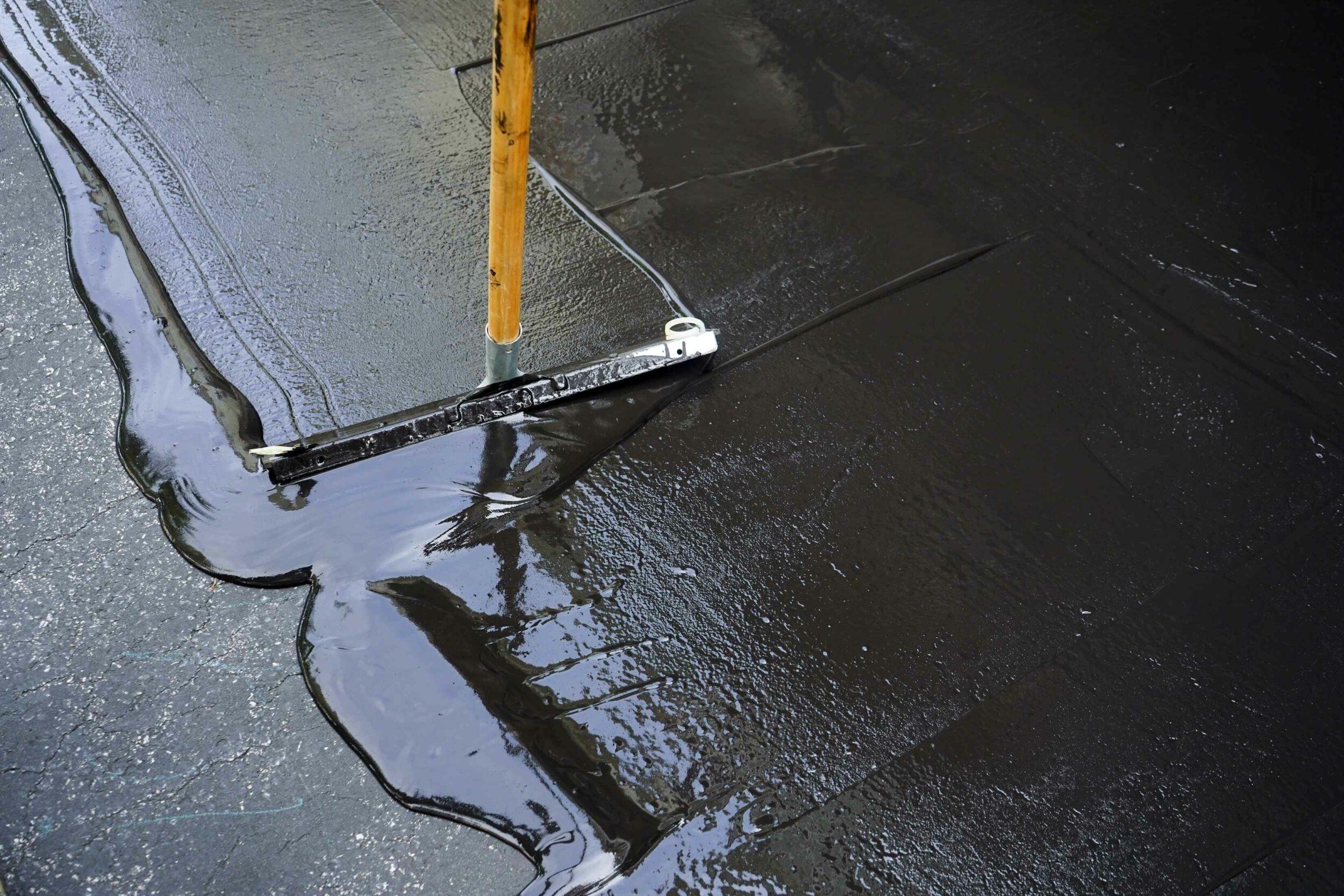
Asphalt is the backbone of our road systems and a popular choice for driveways and parking lots due to its durability and cost-effectiveness. Yet, even the most robust asphalt surfaces can suffer wear and tear over time, especially when exposed to the elements and heavy traffic. To maintain and extend the life of your asphalt pavement, one key solution is seal coating. In this article, we’ll delve into the science of asphalt seal coating, exploring how this essential process can protect your pavement, save you money, construction jobs, and enhance the overall appearance of your property.
Understanding the Basics of Asphalt
To comprehend the significance of asphalt seal coating, we must first understand the nature of asphalt itself. Asphalt is a composite material comprised of bitumen and aggregates, such as sand, gravel, and crushed stone. It is known for its excellent load-bearing capabilities and resistance to the wear and tear of everyday traffic.
However, asphalt is not immune to the adverse effects of the environment and traffic. Over time, it can deteriorate due to several factors, including:
– Ultraviolet (UV) Radiation: The sun’s UV rays can break down the asphalt binder, causing it to become brittle and prone to cracking.
– Oxidation: Exposure to air can lead to the oxidation of the asphalt surface, making it less flexible and more susceptible to damage.
– Chemical Spills: Automotive fluids and other chemicals can weaken the asphalt, leading to surface deterioration.
– Water Intrusion: Moisture can penetrate the asphalt, leading to erosion and weakening of the structure.
– Freeze-Thaw Cycles: In regions with cold winters, the freeze-thaw process can cause cracks to form as water expands and contracts within the asphalt.
All these factors can take a toll on your asphalt pavement, leading to cracks, potholes, and an overall worn appearance. That’s where asphalt seal coating comes into play.
The Science of Asphalt Sealcoating
Sealcoating is a protective barrier that involves applying a thin layer of sealant over the existing asphalt surface through construction jobs. The sealant acts as a shield, guarding the pavement against the elements, chemicals, and abrasion. The science behind asphalt seal coating is both straightforward and effective:
1. UV Protection: Sealcoating creates a UV-resistant layer that shields the asphalt from the sun’s harmful rays. By blocking UV radiation, it helps preserve the asphalt binder’s integrity, preventing it from becoming brittle and prone to cracking.
2. Oxidation Resistance: The sealant forms a protective barrier that guards against oxidation, preventing the asphalt from losing its flexibility and strength.
3. Chemical Resistance: Sealcoating acts as a barrier to chemical spills, safeguarding the underlying asphalt from the corrosive effects of automotive fluids and other substances.
4. Water Repellency: Sealcoating provides a waterproof surface that prevents moisture infiltration. This is particularly crucial because water penetration can lead to erosion and, in cold climates, the formation of damaging ice.
5. Enhanced Aesthetics: In addition to its protective benefits, seal coating also improves the visual appeal of the pavement, giving it a sleek, dark finish that enhances the overall appearance of your property.
The Benefits of Asphalt Sealcoating
1. Extended Pavement Lifespan: Sealcoating significantly extends the life of your asphalt pavement by protecting it from environmental and traffic-related damage. This can save you from costly and premature asphalt replacement.
2. Cost Savings: The upfront cost of seal coating is relatively modest compared to the expenses associated with extensive asphalt repairs or replacements. By investing in seal coating, you’re effectively preventing larger, more expensive issues down the road.
3. Reduced Maintenance: Sealcoated surfaces are easier to maintain. They resist staining and are less prone to cracks and potholes, which means less frequent and less extensive repairs.
4. Improved Safety: Sealcoating enhances the friction of the pavement, providing a safer driving and walking surface by reducing the risk of skidding.
5. Curb Appeal: A fresh seal-coated pavement looks cleaner, smoother, and more attractive. It gives your property a fresh and well-maintained appearance, which can be especially important for businesses looking to make a positive impression on customers.
6. Eco-Friendly: By extending the life of your asphalt pavement, seal coating reduces the need for resource-intensive reconstruction, making it an environmentally responsible choice.
The Sealcoating Process
The seal coating process involves several key steps:
1. Preparation: The pavement is thoroughly cleaned to remove dirt, debris, and any loose or damaged asphalt. This step ensures proper adhesion of the sealant.
2. Crack Sealing: Cracks and potholes are repaired and filled with an appropriate sealant to create a smooth surface.
3. Sealcoat Application: The sealant is evenly applied using specialized equipment. Depending on the formulation, it may be sprayed, brushed, or squeegeed onto the surface.
4. Drying and Curing: The sealant needs time to dry and cure. This typically takes 24 to 48 hours, depending on weather conditions.
5. Striping and Marking: If necessary, pavement markings and striping are added to the newly seal coated surface.
The frequency of seal coating depends on several factors, including climate, traffic volume, and the condition of the existing pavement. In general, it is recommended to seal coat your asphalt pavement every 2 to 3 years.
Conclusion
The science of asphalt seal coating is a powerful tool in preserving and protecting your pavement. By applying a carefully designed sealant, you can shield your asphalt from the ravages of UV radiation, oxidation, chemicals, water intrusion, and physical wear and tear. The benefits are numerous: an extended pavement lifespan, cost savings, reduced maintenance, improved safety, enhanced curb appeal, and eco-friendliness. In essence, seal coating is a smart investment that not only safeguards your asphalt but also enhances the overall aesthetics of your property.
Whether you’re a homeowner looking to maintain your driveway or involved in construction jobs responsible for the care of larger asphalt surfaces, seal coating is a proactive and cost-effective solution that will ensure your pavement stands strong against the elements and the test of time. If you are looking for experts in asphalt reach out to Kilgore Companies!
